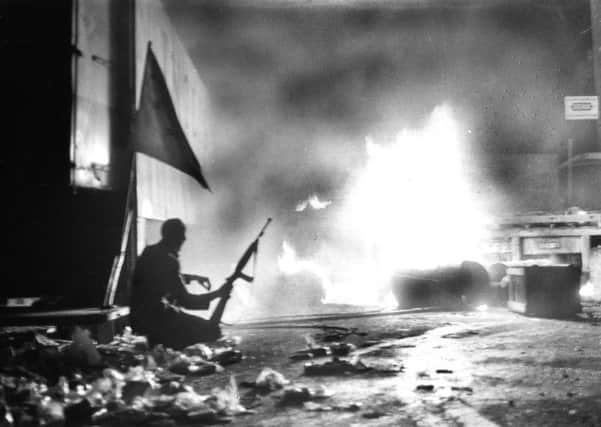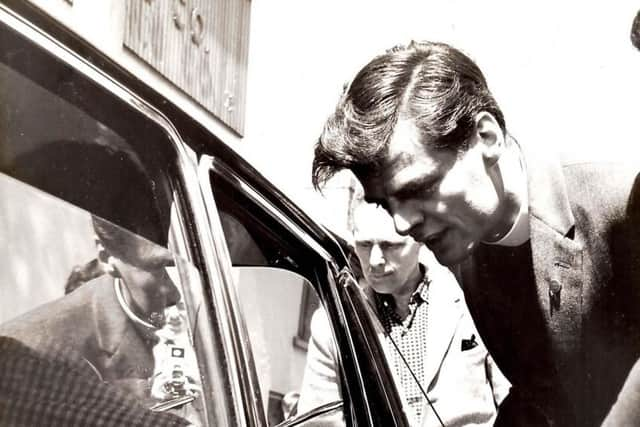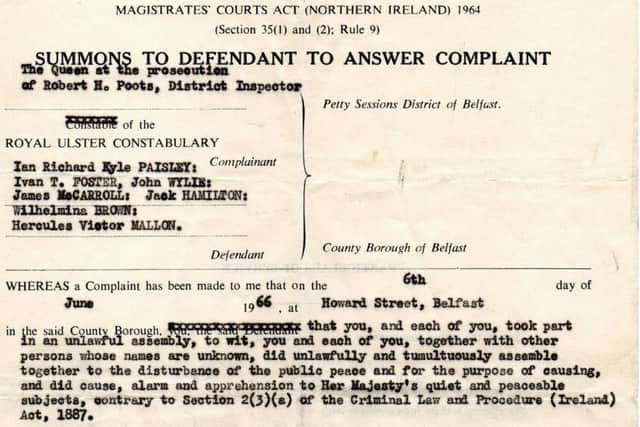Fifty years after being jailed with Ian Paisley, I still sorrow at IRA man's death


On June 6, 1966, a Free Presbyterian protest march made its way from Ravenhill Road to the General Assembly of the Presbyterian Church.
The parade passed through Cromac Square where it was attacked by a republican mob which was already engaged in fighting with the police.
Advertisement
Hide AdAdvertisement
Hide AdIan Paisley, who led the parade, Rev John Wylie and I, a second year student at the Free Presbyterian Theological Hall, found ourselves in court as an outcome of that night’s activities.


One of the issues that stirred our protest was that the then Irish President, Eamon de Valera, had a personal representative attending the General Assembly.
The year 1966 was the 50th anniversary of the ‘Easter Rising’ in which de Valera had played some small part. Protestant feelings were high because of the attempts by republicans to celebrate the rebellion in Northern Ireland and the appeasement of republicans by Stormont’s Prime Minister, Terence O’Neill.
On top of that, the many issues regarding the Presbyterian Church’s involvement in the World Council of Churches and its campaign of reunion with Rome, made the protest at the General Assembly of significant importance for the Free Presbyterian Church.
Advertisement
Hide AdAdvertisement
Hide AdThe protest invoked a vindictive response by the Stormont Government. O’Neill’s government promised retribution for those deemed guilty of the ‘insult’ to the Presbyterian Church in Ireland. It was reported in the June 1966 issue of “The Revivalist”, the Free Presbyterian magazine that: “The O’Neill regime has bowed to the religious dictatorship of the Assembly and assured it that it shall never be picketed again. By doing so the Government has acted contrary to the principles of British democracy. This Church will picket the Assembly again and again.”


Summons were issued to a number of people, including the three Free Presbyterian ministers. We were charged with “unlawful assembly”. Our defence was that our parade was orderly, it followed a route sanctioned by the police and that it was forced to “assemble” outside the General Assembly because the police threw a rope cordon across the road and stopped the march.
Heretofore the parade had passed the Assembly building as it walked along May Street, down Wellington Place to the City Hall, round the back of it and up May Street again.
This had happened three times when the police blocked the lawful route of the parade and forced it to stop. We did not “unlawfully assemble” but in obedience to the police, we stopped!
Advertisement
Hide AdAdvertisement
Hide AdDespite this evidence, we were found guilty. The police were somewhat thrown into confusion when, on the advice of the late Desmond Boal QC, Dr Paisley demanded that all police witnesses be excluded from the courtroom until called to give evidence and then that they remain in the courtroom after they had given their evidence.


This completely stopped any conferring and colluding amongst the police witnesses. The evidence of the confusion was seen when one police witness who had summoned a man to the court for assaulting him, stated plainly when asked that he did not know the man or recognise his name!
But it was a political trial and we were found guilty, fined £40 and bound over to keep the peace for two years. Failure to sign would mean three months in jail.
We immediately stated that since we believed that we had not done wrong and since we would march again the next day to highlight sin if that was required, we would not comply with the binding over to keep the peace.
Advertisement
Hide AdAdvertisement
Hide AdA few days after our court appearance, Dr Paisley was arrested as Rev Brian Green was driving him to his mid-week prayer meeting on Wednesday 20th July.


Rev Wylie was arrested the next day and taken from Newcastle, where he was on holiday, to Crumlin Road jail. I was arrested later that same day and, because it was late, I was ‘lodged’ in the city police cells in Musgrave Street police station.
After a rather sleepless night on a mahogany mattress and a pillow of the same material, I was taken to jail and united with the other two ‘jail birds’.
One incident which I will always remember was my meeting with a young IRA man who was in for possession of explosive material. I worked with him and his two companions in the jail Joinery Shop.
Advertisement
Hide AdAdvertisement
Hide AdHe was Joe McCann. I had many conversations with those lads on the matter of salvation through Christ alone.
Some years later, on the night of April 15, 1972, my wife Ann and I were listening to the midnight news, as most people did in those days.
One of the items on the news bulletin was of a shooting in the Cromac area of Belfast. The newsreader related how that an IRA man had been shot by the Army and that he had died later of his wounds.
That man was Joe McCann.
My mind went back six years to my times of talking with Joe and my pressing him and his friend Seamus about their need of repenting of their sins and embracing Christ by faith if they were ever to enter heaven.
Advertisement
Hide AdAdvertisement
Hide AdHe and his companions were dedicated IRA men. They told me that if ordered they would shoot me! They came over and bade me farewell at the end of work on the day before my release.
I freely admit my heart was filled with grief and I shed tears over the sad fate of that young man.
Yes, he died as a terrorist, but he had gone out into eternity embracing the gun and very obviously rejecting Christ. That is a matter of infinite sorrow and grief.
As the only one of the three jailbirds that remains, I often think of those days I spent in the company of my elder brethren and the much I learned from those stalwarts of the faith in that ‘school of the prophets’! One day we will meet again in a much better mansion.
Advertisement
Hide AdAdvertisement
Hide AdThose three months became amongst the most significant in the life of the Free Presbyterian Church. They were followed by a stirring amongst the people and thousands flocked to hear the message of the Gospel in open-air gatherings and in halls of every description.
There were many, many converts to Christ. New congregations were formed and hundreds and hundreds joined the Free Presbyterian Church.
In later years, those who experienced those times of blessing, which continued for a number of years amongst us, were justifiably minded to call it a time of revival.
• The Rev Ivan Foster is a retired Free Presbyterian minister from Kilskeery, Co Tyrone. He has written a booklet recalling in greater detail the period covered by this article. It is available at www.ivanfoster.net/pdf/time_to_be_remembered.pdf